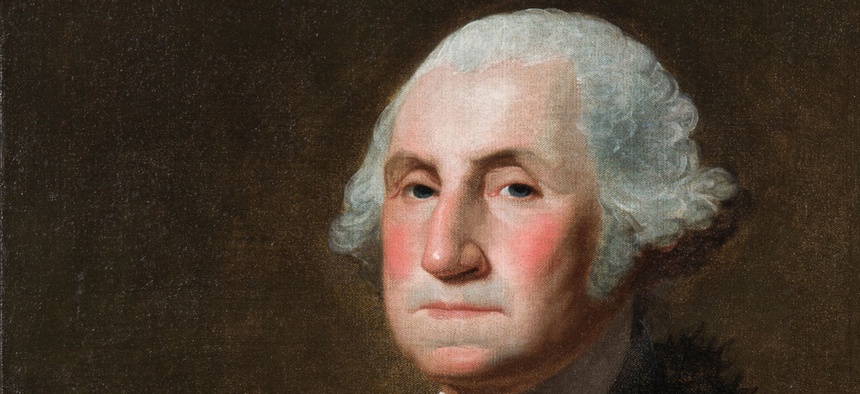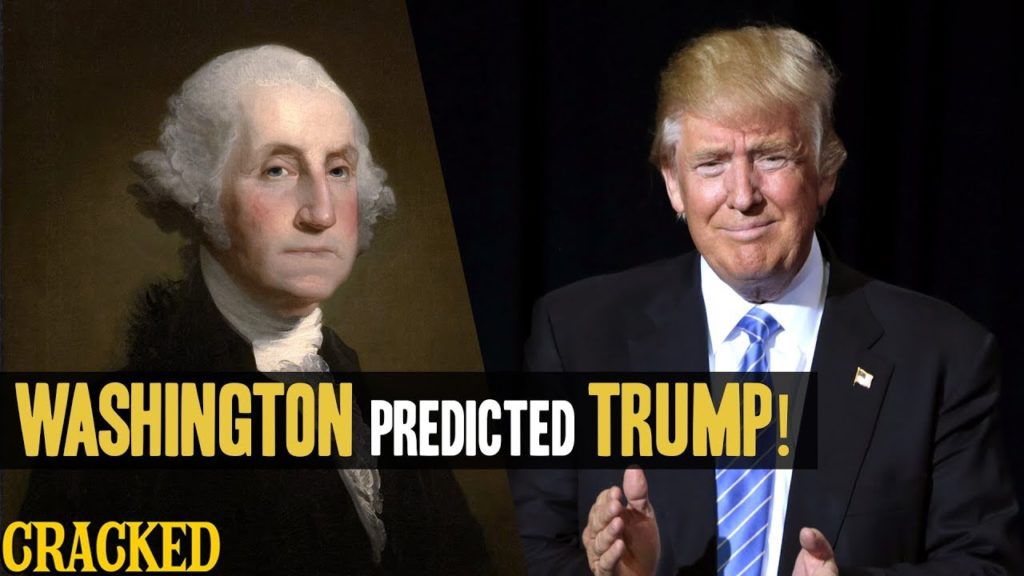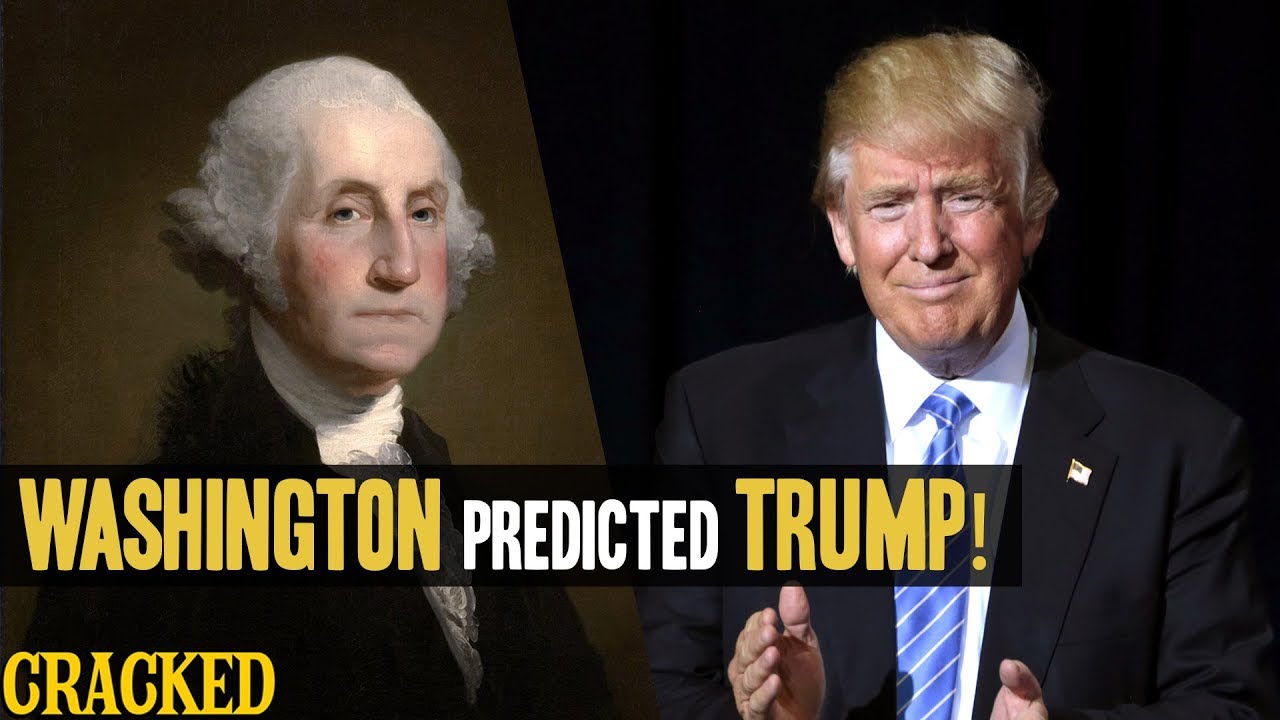BY KEVIN BARON, EXECUTIVE EDITOR

The first US president anticipated political misinformation, division, and attempts to subvert the rule of law in the pursuit of power.
George Washington would have hated Donald Trump, right about now.
In his Farewell Address of 1796, Washington thanked the American people for their love and support, and then cautioned and counseled them to protect the “unity of government” that they had so recently earned and that remained, he said, “so dear to you.” The first president warned Americans to hold strong against divisive attacks from within — the kind that President Donald Trump is putting the nation through today.
If today’s Americans know anything of Washington’s farewell address, it’s likely through a stellar number in the musical Hamilton. The song focuses on Washington’s decision to give up power so “the nation learns to move on. It outlives me when I’m gone.” The real-life letter offered a sharper warning to Americans, who just two decades after the Declaration of Independence were already growing apart.
Washington warned of “internal” enemies directed to act “often covertly and insidiously.” He begged Americans to hold dear “the immense value of your national union to your collective and individual happiness.” He urged that “you should cherish a cordial, habitual, and immovable attachment to it” and preserve it “with jealous anxiety.” The outgoing president added that Americans should be “indignantly frowning upon the first dawning of every attempt to alienate any portion of our country from the rest.”
Every attempt.
Washington also knew, like everyone at the time, that the new nation was still fragile. He understood — and took pains to describe — the different stakes for the North and South, East and West, and how people from each region would lay claim to America. But most important, he said, was that everyone in the new nation consider themselves first as Americans.
His warning against political parties might be the passage most frequently invoked today. But read closer. It’s not just about the existence of parties. He specifically warned about political disinformation and propaganda. One of the features of party factions, he says, is “to misrepresent the opinions and aims of” other parties and regions.
America’s partisans will spew so much fake news, Washington warned, that you can’t do enough to protect yourself from it.
“You cannot shield yourselves too much against the jealousies and heartburnings which spring from these misrepresentations; they tend to render alien to each other those who ought to be bound together by fraternal affection,” he wrote. (We know that James Madison and Alexander Hamilton wrote much of it, but it’s generally accepted as Washington’s thoughts.)

Washington even warns against the kind of insincere attacks on the nation’s laws and the Constitution being put forth by Trump’s campaign and lawyers in the form of baseless claims of election fraud. He calls such disregard for the rule of law “destructive of this fundamental principle, and of fatal tendency. They serve to organize faction, to give it an artificial and extraordinary force; to put, in the place of the delegated will of the nation the will of a party, often a small but artful and enterprising minority of the community; and, according to the alternate triumphs of different parties, to make the public administration the mirror of the ill-concerted and incongruous projects of faction, rather than the organ of consistent and wholesome plans digested by common counsels and modified by mutual interests.”
In other words, a few bad apples will try to supplant the actual will of the people with their own. If Americans let them, Washington says, “cunning, ambitious, and unprincipled men will be enabled to subvert the power of the people and to usurp for themselves the reins of government.”
Washington’s well-known warnings about political parties should be taken to heart today and for whatever comes next, once this 2020 presidential election is decided. He was not naive; he said the spirit of political parties is “inseparable from our nature.” But how we allow partisans to control us, or direct us, or lead us — constantly threatening our national unity — is not. It’s not one tyrant that Washington fears. It’s that we ourselves will become tyrants against each other, in election after election. Back and forth. Over and over. Until we no longer are free.
“The alternate domination of one faction over another, sharpened by the spirit of revenge, natural to party dissension, which in different ages and countries has perpetrated the most horrid enormities, is itself a frightful despotism,” Washington says. “But this leads at length to a more formal and permanent despotism.”
The first president left his farewell address for us to revisit when we needed it. He hoped his words “may be productive of some partial benefit, some occasional good; that they may now and then recur to moderate the fury of party spirit, to warn against the mischiefs of foreign intrigue, to guard against the impostures of pretended patriotism.”
It’s up to Americans — and our political leaders — to choose whether to heed Washington and reject hyper-partisan factionalism, disinformation, and the power grabs of the “cunning, ambitious and unprincipled” among us. As Washington wrote, the alternative is permanent despotism. That is the greatest national security threat of all.
DEFENSEONE


Leave a Reply
You must be logged in to post a comment.